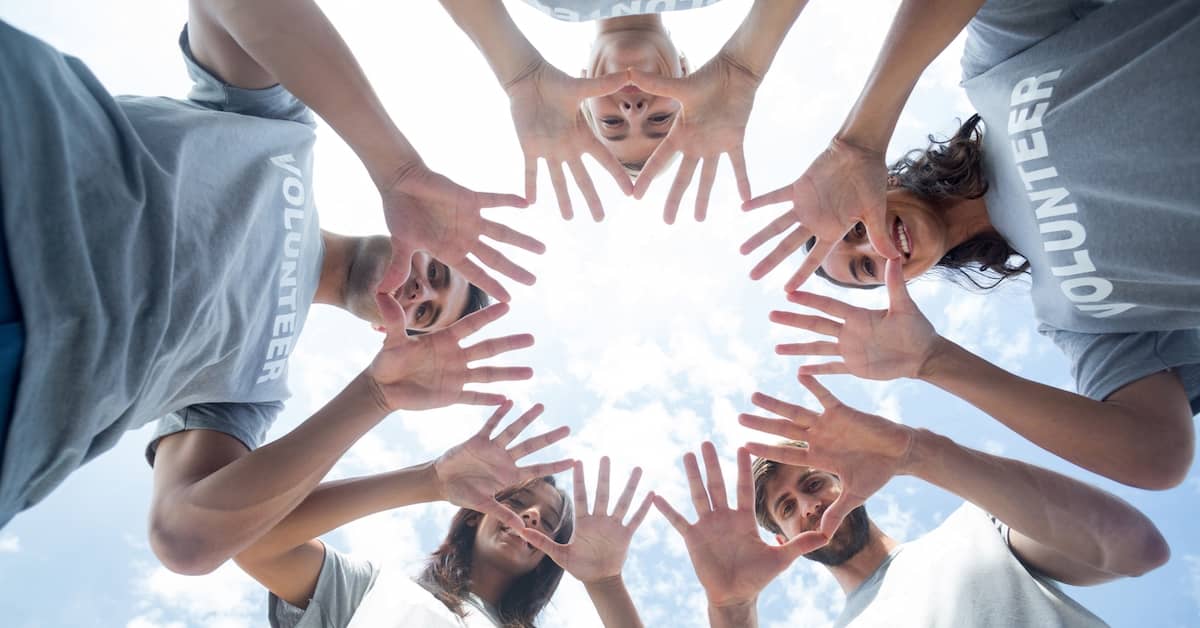
Sharply Reduces the Risk of Death
It's estimated that more than one in four Americans engage in some form of voluntary work. Reasons cited include 'giving something back' to their community, supporting an organization or charity that has helped the volunteer in the past, or simply meeting new people. Whatever the reason, a review of 40 research papers on the topic found that volunteering had favorable effects on depression, life satisfaction, and well-being. It also lowered the risk of death by 22 percent.1 A separate study found people aged 50 or over who volunteered for at least 200 hours in the previous 12 months were 40 percent less likely to develop high blood pressure than those who did no voluntary work.2 But the clearest evidence is seen in people's mental and psychological health.Boosts Mental Health from Age 40
Because the link between service to others and improved mental health has been well studied in older age groups, researchers from the Universities of Southampton and Birmingham in the UK decided to carry out a study across a much wider age spectrum. They reviewed responses to a survey conducted between 1991 and 2008 which asked every member of 5000 UK households who was above the age of 15 a variety of questions about their lives including leisure activities and formal voluntary work. This was repeated with each household every two years after 1996. At each occasion the researchers asked 12 questions that make up the General Health Questionnaire (GHQ). This is a reliable indicator and measure of mental health and happiness. They took account of many influential factors that could affect their analysis, such as marital status, income, education, social class, health status and membership of social groups. Across the entire sample of household members, the best GHQ scores were found among the people who volunteered the most, and the worst among those who never volunteered. When age was factored in, it was found that during early to mid-adulthood there was no evidence that volunteering benefited mental health. But from the age of 40, a positive association was plain to see. The researchers wrote: "Those who never volunteered seemed to have lower levels of mental well-being starting around midlife and continuing in old age compared to those involved in volunteering."3 The lead author of the study was Dr. Faiza Tabassum. She commented on the findings by saying that volunteering provided people with beneficial things to do, more social contact and a sense of purpose and prestige. These in turn lead to better physical and mental health.4Specific Brain Benefits Revealed
As to the specific brain benefits of volunteering, Christine Proulx, an associate professor in human development and family science at the University of Missouri, led a study that looked into this. The team analyzed cognitive function in 11,000 Americans aged 51 and over. Their conclusion? "Formal volunteering was associated with higher levels of cognitive functioning over time, especially with aspects of cognitive functioning related to working memory and processing."5 Working memory stores and manages data temporarily. It consists of a small amount of new information a person needs to retain while carrying out a task. Processing is the word for how the mind can take in and store information. Fast processing is good; slow is not so good. Professor Proulx suggests these brain functions are engaged by volunteering because it involves following directions, solving problems and being active.6 There are countless ways to volunteer, from food pantries to literacy programs to youth groups. It’s all but certain you can find something that suits you.Religious Teachings are Right Again
Many of the world’s great religious traditions call on us to serve others – not just donating money but giving of our own time and ability in ways that seem to demand serious sacrifice – on the surface at least. However, in my experience, every time I’ve set out to help people in this way I’ve turned out to be the main beneficiary. I can’t begin to tell you how rewarding it can be – and how surprised you’ll be when you see for yourself. People are so oriented toward looking out for themselves and seeking their own gain, the idea that you can benefit by serving others seems completely upside down – paradoxical and even downright nonsensical. That view is deeply mistaken. It’s the “look out for number one” philosophy we should challenge. I once heard a Hindu guru say that prayer, song and service to others are the primary ways to serve God. How convenient that all three are good for us, too, as proven by scientific studies.- http://www.exeter.ac.uk/news/featurednews/title_315358_en.html
- https://www.ncbi.nlm.nih.gov/pubmed/23795768
- https://www.ncbi.nlm.nih.gov/pmc/articles/PMC4985873
- https://www.sciencedaily.com/releases/2016/08/160809122133.htm
- https://www.ncbi.nlm.nih.gov/pubmed/28958028
- https://munews.missouri.edu/news-releases/2017/1016-for-older-adults-volunteering-could-improve-brain-function/
